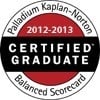As a Google Certified Ads consultant who has managed over $6 million in ad spend (and counting), one of the most critical skills I've honed is keyword research. Whether you're working on boosting your SEO or optimizing Google Ads campaigns, understanding how to effectively research Google PPC keywords and generate keyword ideas is the foundation of success. The difference between hitting your traffic and conversion goals versus missing them often comes down to whether you're targeting the right keywords.
And that’s where the power of free keyword research tools like Google's Keyword Planner comes in. It is a free Keyword Research Tool provided by Google to help you with your Google Advertising. I use the Google Keyword Tool as my keyword research tool when I perform keyword research when I am setting up both Google search campaigns and display campaigns, in fact, I use it for every type of Google Campaign, including even Shopping Campaigns. It reveals keyword search volumes, and is outstanding as an adwords keyword finder. It also serves as a adwords keywords tracker. By providing search volume data for each keyword, and aligning dedicated landing pages for each keyword, I can send very targeted clicks to exactly the right page.
Core Digital Advertising Task for Success
Think about this for a second: imagine spending thousands of dollars on Google Ads or investing months into SEO, while not using the Google Adword Keywords Planner, only to realize that you're targeting keywords no one is searching for, or worse, the wrong audience entirely. Keyword research isn't just a "nice to have"—it’s the core of every successful digital marketing campaign. Over the years, I’ve worked with a wide range of clients, helping them find the right keywords to target using professional tools like Google Keyword Planner and AdWords. Today, I’ll guide you through how I do it, step by step in the Google Adwords Keywords Tutorial.
Step-by-Step Guide to Researching Keywords for SEO and Google Ads:
- Understand the importance of keyword research for both SEO and Google Ads.
- Use the Google Keyword Planner Tool to find SEO-friendly keywords.
- Leverage AdWords Keyword Research Tools to optimize your paid campaigns.
- Use Google tools to discover the best keywords for your campaigns.
- Integrate your SEO and Google Ads keyword strategy for maximum impact.
Understanding the Importance of Keyword Research for SEO and Ads
Why is keyword research such a crucial piece of the digital marketing puzzle? Simply put, your audience’s search behavior dictates your success. When done right, using the free google adwords keyword tool, keyword research helps you understand how your target audience is searching for products or services, what pain points they have, and how you can answer those needs better than your competitors.
Google Keyword Analyzer Tool
With tools like the google keyword checker and google keyword discovery tool, you can not only uncover the terms your audience is already using but also identify hidden opportunities to dominate in your niche. These tools are essential, whether you’re trying to rank organically or crafting paid campaigns on Google Ads.
How to Use the Google Keyword Planner Tool for SEO
The Google Keyword Planner tool is a powerhouse for finding SEO-friendly keywords that can help you rank higher in search engines. Here's how I approach using it to find the best keywords for SEO:
- Start with a seed keyword: Input a broad term related to your business. For instance, if you’re in digital marketing, you might start with “content marketing” or “SEO tools.” You can also provide it a URL to help the AI understand what the page is about.
- Analyze keyword suggestions: The AI powered tool will generate a list of related keywords. This is where you look for high-volume, low-competition opportunities that can help you rise in search results. It will also show keywords related to your broad term theme, even though it may not look like it initially.
- Check search volume trends: One of the biggest mistakes marketers make is targeting a keyword that spikes in popularity but fades quickly. Use the tool’s trend data to make sure the keywords you target have long-term potential.
Using the google keyword analysis tool allows you to gauge which keywords will bring in traffic while also aligning with your content goals. This is the same process I follow for my clients when I'm looking to boost their organic traffic.
Using AdWords Keyword Research Tools for Google Ads Campaigns
When it comes to paid campaigns, targeting the right keywords can be the difference between a high return on investment (ROI) and wasted budget. Here’s how I use AdWords keyword research tools to optimize campaigns:
- Discover new keywords: Start by using the AdWords keyword planner to get keyword ideas that are not just popular but also relevant to your ads. I often find hidden gems—keywords that are low in competition but high in intent. Be sure to remember to add them to your google ads account. And rememberr, google ads keyword research is not a one-and-done effort. You'll need to revisit this subject frequently, often weekly, to ensure you're not wasting ad-spend dollars.
- Refine your keyword list: Remove any irrelevant keywords or phrases that don’t match your audience’s intent. It’s essential to focus on terms that will drive conversions, not just clicks.
- Budget allocation: Keywords have varying costs. By using the Google ads keyword planner, I can identify which keywords deliver the highest returns based on their cost per click (CPC) and conversion potential.
I’ve used these strategies across various industries, from e-commerce to B2B services, to make sure my clients get the most out of their Google Ads campaigns.
Tips for Finding the Best Keywords Using Google Tools
Finding the best keywords isn’t just about volume—it’s about relevance and intent. Here’s how I ensure I’m selecting the most valuable keywords:
- Use the google keyword discovery tool to find niche keywords that your competitors may have overlooked.
- Leverage tools like the google keywords search tool to dig deep into long-tail keywords—these can often deliver more qualified traffic and higher conversions.
- Make sure to balance short-tail (high competition, high volume) with long-tail (low competition, niche audience) keywords.
One of the most effective ways to ensure you're on the right track is to constantly analyze performance data. Use a google keyword performance checker to monitor how well your chosen keywords are delivering results and adjust your strategy accordingly.
Optimizing Keyword Research for Both SEO and Google Ads
Here’s a tip: You don’t need to create two separate keyword strategies for SEO and Google Ads. Instead, you can and should align your keywords across both channels, focusing on intent. For example:
- For SEO: Target broad keywords like "content marketing tips" to capture searchers in the awareness stage.
- For Ads: Use highly specific, purchase-intent keywords like "buy SEO software" or "best SEO service providers" to drive immediate action.
By continually refining your keyword lists using tools like the Google keywords search tool, you can maximize the impact of both your organic and paid strategies. This integrated approach ensures that you're driving the right traffic, whether through search or ads.
Google Search Console/Keyword Planner
Here's another pro-tip. For pages you're already getting traffic to, you can use the Google Search Console to see which words actual users are inputting when Google surfaced it, commonly known as an impression.
Conclusion
Keyword research is an ongoing process—one that evolves as search trends change and as you refine your business strategy. Whether you’re working on an SEO campaign or optimizing your Google Ads, the key to success is understanding how to use the right tools and techniques to uncover valuable keywords. From the Google keyword planner tool to AdWords keyword research tools, these are the same methods I’ve used to help my clients achieve better rankings, drive more traffic, and improve their overall ad performance.
Now that you’ve learned how to research keywords effectively, it’s time to apply these strategies to your own campaigns. Whether you’re optimizing for SEO or setting up a new Google Ads campaign, the right keywords will help you reach your goals.



